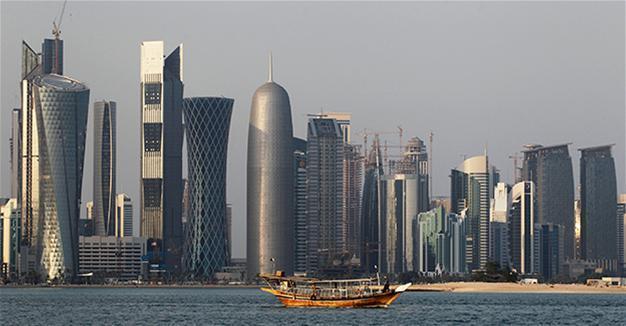Four Arab states double down on Qatar boycott
 Arab states boycotting Qatar said on July 30 they would make no compromises in their demand that Doha change its policies, as a crisis that has split the Gulf approaches its third month.
Arab states boycotting Qatar said on July 30 they would make no compromises in their demand that Doha change its policies, as a crisis that has split the Gulf approaches its third month.Saudi Arabia, Bahrain, the United Arab Emirates and Egypt broke ties with Qatar on June 5, accusing the emirate of fostering Islamist extremist groups and of ties to Saudi arch-rival Iran. Qatar has denied the allegations.
The foreign ministers of Saudi Arabia, the United Arab Emirates, Bahrain and Egypt, who met in the Bahraini capital on July 30, said they were open to talks with Qatar on condition it “stops its support and financing of terrorism.”
“We reiterate the importance of Qatar’s compliance with the 13 demands outlined by the four states,” said a joint statement released on July 30.
The Saudi-led bloc in June issued the list of demands for the lifting of sanctions, including the termination of Al-Jazeera, the downgrading of ties to Iran and the closure of a Turkish military base in the country.
Saudi Foreign Minister Adel al-Jubeir said Qatar was not serious in tackling the countrieas’ demands.
“We are ready to talk with Qatar on the implementation of the demands, on the implementation of the principles, if Qatar is serious, but it has been clear that it is not,” he said.
The four countries have also listed “six principles” they want Qatar to adopt.
Earlier yesterday, al-Hayat newspaper said, citing unidentified Gulf sources, that the four countries “are expected to impose sanctions that will gradually affect the Qatari economy.”
They announced no new economic sanctions on the Gulf state. Saudi Arabia has closed its land border with Qatar while all four countries have cut air and sea links with Doha, demanding the gas exporting country take several measures to show it was changing its policies.
Turkey and Iran have stepped in to provide fresh produce, poultry and dairy products to Qatar instead of Saudi Arabia and the UAE, with Oman providing alternative ports to those in the UAE.
The four Arab countries added 18 more groups and individuals they say are linked to Qatar to their “terrorist” lists last week.
Qatar has also accused Saudi Arabia of restricting Qatari pilgrimage to Mecca, the site of the annual Muslim Hajj pilgrimage that falls next month.
Saudi Arabia and its allies yesterday accused Qatar of complicating Hajj for its citizens, who cannot take direct flights from Doha to Saudi Arabia under the sanctions. Kuwait is leading mediation efforts in the crisis, the worst to grip the region since the 1981 creation of the six-nation Gulf Cooperation Council, which includes Saudi Arabia, UAE, Bahrain and Qatar.
The two other GCC members, Kuwait and Oman, have not joined the Qatar boycott.
















